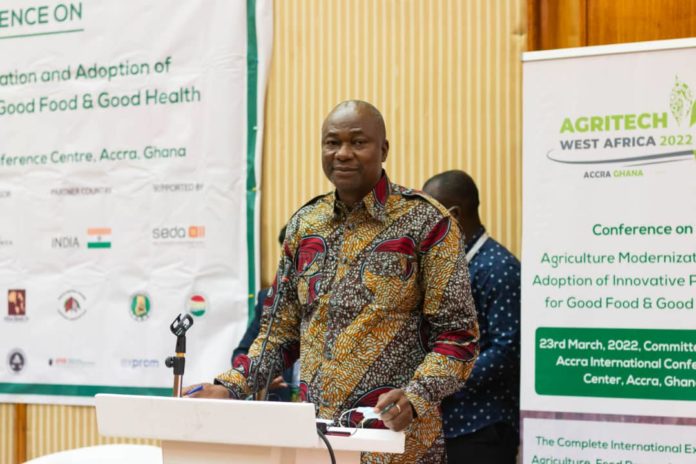The Deputy Minister for Food and Agriculture, Alhaji Mohammed Hardi Tufeeiru, has stated that government plans to support smallholder farmers in climate-resilient agriculture through various initiatives and policies.
He said the government is considering fostering partnerships with international development agencies and donor organizations to provide training and technical assistance for smallholder farmers on climate-smart agriculture practices: especially farmer-led irrigation development schemes, water management, crop diversification for high-yielding ones, and pest management.
With irrigation identified as one of the solutions to promoting climate resilience in agriculture, he revealed that out of the country’s 1.9 million hectares of irrigation potential, 224,000 hectares are under informal and small-scale irrigation systems used by about half a million smallholder farmers nationwide, hence the need for more support.
The move is aimed at improving food security, enhancing the livelihoods of smallholder farmers, and promoting sustainable agricultural practices.
The deputy minister hinted that government will also consider providing incentives and funding support to smallholder farmers for the adoption of climate-smart agriculture technologies and purchase of climate-resilient farming inputs.
Additionally, investment initiatives toward the development of rural infrastructure such as roads, silos, and warehouse storage facilities under the Planting for Food and Job (PFJ) will continue. This is to enable smallholder farmers to access markets and reduce post-harvest losses.
“The solution to climate-menace in food production, especially in Africa, is irrigation. Unfortunately, over the past years government intervention in this challenge was on a large-scale basis, but the strategy has changed to targetting smallholder farmers.
“We all know the role agriculture plays in our economy, especially for smallholder farmers. The importance of supporting smallholder farmers in climate-resilient agriculture in this era of global warming and climate change cannot be overemphasized, because by investing in resilient agriculture we are not only securing food and nutrition for our citizens but also contributing to the global efforts toward mitigating climate change,” he said.
He added that the Ministry for Agriculture has a dedicated body, the Ghana Irrigation Development Authority (GIDA), with the mandate to oversee all forms of irrigation operation, management, and maintenance initiatives in the country; in line with the Africa Union’s (AU) water management and irrigation development framework 2020.
The investment will be targetted at communities that are prone to climatic shocks such as droughts and floods, which have a significant impact on agricultural production.
Some dams which were constructed under the One Village, One Dam (1V1D) programme will undergo rehabilitation, for irrigation systems to increase the availability of water for agricultural activities in rural communities.
The government’s commitment to supporting smallholder farmers in climate-resilient agriculture is a clear indication of its determination to promote sustainable development and improve the lives of its citizens. In addition, the government will be investing in research and development to develop drought-resistant crops and improve soil fertility.








